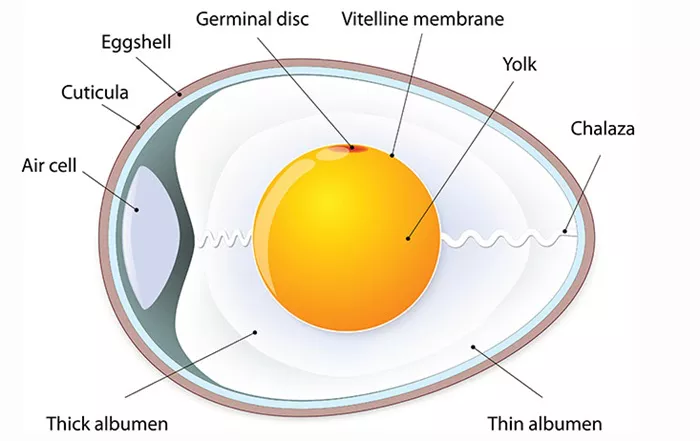As the demand for plant-based foods continues to rise, products like Just Egg, a popular plant-based alternative to traditional eggs, are becoming common sights in grocery stores and on restaurant menus. But what exactly is in Just Egg, and how does it stack up nutritionally compared to regular eggs? Experts have shared their insights on the ingredients, nutritional profile, and overall health benefits of this egg alternative.
The Rise of Plant-Based Foods
Plant-based products, once relegated to niche sections of the supermarket, have now entered the mainstream, with items like tofu turkeys and Impossible Burgers gaining widespread popularity. Just Egg, a liquid vegan egg substitute, is one of the latest examples. However, just because a product is labeled as “plant-based” doesn’t automatically make it healthier.
“Plant-based foods can fall under a health halo, giving the impression they’re automatically a healthier choice than their animal-based counterparts,” says Cara Harbstreet, MS, RD, LD, of Street Smart Nutrition. She emphasizes the importance of critically evaluating the ingredients and nutrition facts to make informed decisions.
What Are Plant-Based Eggs?
According to Harbstreet, plant-based eggs are simply vegan alternatives to traditional eggs. Unlike conventional eggs that come in shells, plant-based eggs like Just Egg are sold in liquid form, often packaged in cartons or bottles. Other versions may come in powdered form, requiring mixing with water before use. These products appeal not only to vegans but also to individuals with egg allergies.
Breaking Down Just Egg’s Ingredients
Just Egg’s ingredients list is extensive, including:
- Water
- Mung Bean Protein
- Expeller-Pressed Canola Oil
- Dehydrated Onion (less than 2%)
- Gellan Gum
- Natural Carrot and Turmeric Extracts (for color)
- Potassium Citrate
- Salt
- Sugar
- Tapioca Syrup Solids
- Tetrasodium Pyrophosphate
- Transglutaminase
- Nisin (preservative)
Registered dietitian Destini Moody points out that, despite the length of the list, “It’s not a bad ingredient list overall, aside from some additives for color and texture.”
Nutritional Comparison: Just Egg vs. Regular Eggs
How does Just Egg compare nutritionally to a standard egg? Here’s a quick breakdown of the nutritional content for one serving (three tablespoons of Just Egg equals one egg):
Just Egg: 70 calories, 5 grams of fat (0 grams saturated fat), 1 gram of carbohydrates, 5 grams of protein, 170 mg of sodium, and 0 mg of cholesterol.
Regular Egg: 72 calories, 5 grams of fat (less than 2 grams of saturated fat), 0.5 grams of carbohydrates, 6 grams of protein, 65 mg of sodium, and 207 mg of cholesterol.
While Just Egg provides a similar calorie and protein count to regular eggs, it offers the benefit of being cholesterol-free, which may appeal to those watching their cholesterol intake.
Is Just Egg a Healthy Choice?
Whether Just Egg is a healthy option depends on individual health goals. Dr. Chris Mohr, Ph.D., RD, advises that Just Egg can be a smart choice for those avoiding traditional eggs, but it is important to consider that it’s an ultra-processed product, which means it contains additives like sodium and preservatives.
“If cholesterol is a concern, then opting for Just Egg may be a better choice,” says Harbstreet. “But for most people, eating eggs in moderation won’t significantly affect cholesterol levels, and the nutritional benefits of regular eggs often outweigh the risks.”
Moody highlights that, while Just Egg provides protein, the mung beans used in the product don’t have the same profile of essential amino acids as traditional eggs, limiting its nutritional completeness.
What Regular Eggs Have That Just Egg Doesn’t
Harbstreet notes that regular eggs contain several essential vitamins and minerals, such as:
- Vitamin A
- Vitamin B12
- Vitamin D
- Choline
- Selenium
Just Egg, while rich in protein, doesn’t provide these nutrients in the same quantities. On the flip side, Just Egg’s lack of cholesterol and lower environmental impact make it a suitable choice for certain consumers.
The Environmental Factor
Plant-based eggs like Just Egg not only appeal to health-conscious individuals but also those concerned about environmental sustainability. Harbstreet explains that Just Egg has a lower carbon footprint than regular eggs, although it still contributes to emissions due to its packaging and processing. However, traditional eggs have a smaller carbon footprint compared to other animal-based proteins like chicken or beef.
Is Just Egg Highly Processed?
Yes, Just Egg is considered a processed food. “Processed foods are those that have been altered from their whole form and often include added preservatives or stabilizers,” says Moody.
While processed foods aren’t necessarily unhealthy, Moody points out the contrast between Just Egg, which contains multiple ingredients, and a regular egg, which is simply one whole food item.
Final Thoughts
Just Egg offers a plant-based alternative to traditional eggs, making it a viable option for vegans, those with egg allergies, or people looking to reduce their cholesterol intake. However, it is important to remember that Just Egg is an ultra-processed product, and while it has its advantages, it lacks some of the essential nutrients found in regular eggs. Ultimately, the decision between Just Egg and traditional eggs comes down to personal dietary preferences and health priorities.
Related Topics
The Rise of Protein Dirty Sodas: A Nutritionist’s Perspective

































